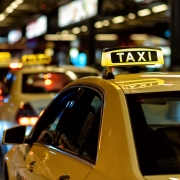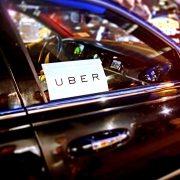The DC Metro is the epitome of government incompetence. Out of the four years that Washington was my home, I rode the Metro for three. I would have ridden it the entire time if it didn’t develop the unfortunate habit of bursting into flames at any given moment. In fact, the fires became so common, it inspired the launch of a website appropriately titled “Is The Metro on Fire?”
Aside from its spontaneous combustion, the Metro is always breaking down, is rarely on schedule, and is generally poorly-ran. Eventually, the problems became too serious to ignore and the Metro, which hundreds of thousands of people rely on each week, was actually shut down for long periods of time to accommodate for the repairs. Obviously, this impacted a city of commuters, whose tax dollars were paying for the inconvenience.
But wait, there’s more.
The Metro Is a Mess
The Metro spent $2.8 billion dollars for an 11.4-mile expansion with the introduction of the new “silver line.” The first phase of the project was completed in 2014 and was a whopping $225 million over budget. With all this money spent, one would assume that the quality would be pristine. But unfortunately, quality and the Metro have never once gone hand-in-hand.
After years of construction, it was revealed last April that the 1,700 concrete panels that were installed as part of the project were actually defective. Washington is no stranger to bitter east coast winters. Which is why it is shocking that the new concrete and steel panels were built with “insufficient safeguards for water to expand and contract.” Now, the steel panels will have to be resealed, costing taxpayers more money. The Metro is claiming that this will not impact the 2020 target launch date, but no one is holding their breath.
In May, it was revealed that Metrorail workers actually bypassed inspections in “hard to reach” areas of the Metro. According to the Washington Post:
Metro crews copied and pasted language from prior years’ structural inspection reports for the Rhode Island Avenue station and in other instances skipped hard-to-reach areas, culminating in a steel beam and concrete chunks falling from the ceiling in 2016, the agency’s inspector general concluded in a report…”
It’s no surprise then, that in the wake of the Metro’s issues in 2016, ridership is down. According to Reason, prior to the construction, the Metrorail’s weekday ridership averaged 639,000. A year later in 2017, that number dropped down to 612,000 per week. And in fiscal year 2018, the Metrorail’s average weekday ridership dropped down to 598,000.
Luckily for DC commuters, ridesharing has come to the rescue to step in and get people to work when the Metro fails to do so. In fact, since the train is such a mess, many commuters have opted to utilize ridesharing daily instead, adding to the decrease in Metro passengers.
And as if all this wasn’t bad enough, after showing no sign that it has made any effort to get its act together, the Metrorail will now be receiving a new subsidy courtesy of the ridesharing sector.
Punishing Profitable Companies
Each time the train breaks down, which was at least once a month, I took comfort in knowing I could still make it to work on time by grabbing an Uber or a Lyft. And I was not alone in this. As soon as the dreaded, and incomprehensible, announcement would be made that the Metro was experiencing technical difficulties, hoards of riders would make their way out of the underground Metro stations and onto the DC streets where they could order an Uber or Lyft.
In reality, the Metrorail should be thankful to the ridesharing industry for bailing it out when it failed to live up to its expectations of service. But instead of showing their gratitude, the DC City Council has now passed a law that is forcing Lyft and Uber to help subsidize the cost of the Metro’s incompetence. In other words, the ridesharing sector is now going to be forced to financially bail out the Metro.
As reported by Reason:
On Tuesday the D.C. City Council boosted the city’s tax on trips performed by services like Uber, Lyft, and Via from the current 1 percent tax to a full 6 percent, adding 50 cents to a $10 ride.”
And while forcing your competition to fund your own inefficient system is absurd on its own, City Councilman Jack Evans called these new subsidies, “very exciting.” It should also be mentioned that Evans chairs the Metro’s board, making this whole proposal a giant conflict of interest. Evans is using his position as a city councilman to help fund a project that has already proven itself unworthy of additional funding.
This also flies in the face of the market process. Consumers choose which products and services they like by voting with their dollars. Clearly, consumers like Uber and Lyft, otherwise they wouldn’t be using the services so much. And since Metro ridership is drastically down, this should prove that something is clearly not working. Not only do DC residents not have a desire to die engulfed in flames on a smelly Metro car, they also prefer to use ridesharing apps.
But this new tax on the ridesharing sector will greatly impact DC commuters. The tax will surely be passed down to the consumer to help bear the burden. This means that both the ridesharing sector and DC consumers lose. The only clear winner here is the DC Metro, who gets to be rewarded for its incompetence (while ridesharing companies are penalized for its competence) with what is expected to amount to a $178.5 million worth of subsidies.
To matters worse—yes they can still get worse— Evans insulted the consumer by brushing off this cost saying, “No one will notice that. No passengers will know because they have no idea what they are going to pay anyway.” Evans would be wise to remember that these “naive” consumers are also responsible for his reelection.
A Lyft spokesperson commented on the matters, saying:
While we’re disappointed that City Council voted to increase taxes across the board without providing measures to incentivize the use of shared rides, Lyft remains focused on providing the best transportation experience possible.”
This says loads about where this country stands on market competition. Washington D.C. clearly does not care what the consumers want, or they would have realized that ridesharing is the clear victor in this situation. But instead of praising someone for offering a service that works and benefits DC residents, the ridesharing sector is once again being punished for doing a great job. And this should dismay everyone.













